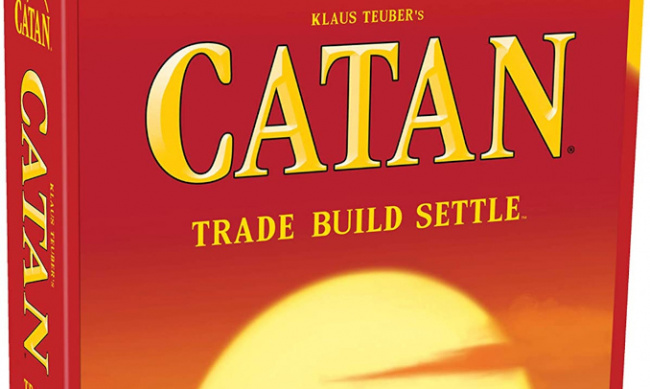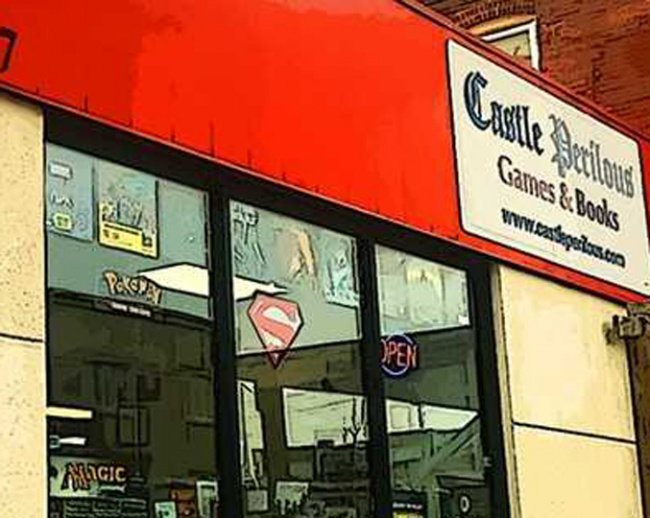Looking over the ICv2 list of top selling board games for Fall 2021 (see "Top Hobby Channel Boardgames-Fall 2021"), a couple of things caught my attention. For one, there were many catalog and evergreen titles on the list. By my count a good two-thirds of the list consisted of games that were originally released over four years ago, and only one, at least that I could tell, that released in 2021 (Leder Games’ Oath). Catan, which came in at #7 on the list, released originally back in 1996 and Ticket to Ride, which clocked in at #8, first hit the shelves back in 2004. According to NPR, Catan Studios had sold 32 million copies of Catan as of 2020. Also, as of the same date, the U.S. had over 320 million people, indicating that there are still a lot of people who have not purchased a copy of the game yet. Meanwhile, Ticket to Ride has sold eight million copies since its release.
Both of these games are, of course, pikers compared to Monopoly, which has sold 275 million copies since its release back in 1930 according to CNN. And, despite the number of copies that show up every year at yard sales price from $1 to $5, Monopoly still sells steadily. Both Ticket to Ride and Catan have a long way to go to catch up.
Every month I see announcements of dozens of new games releasing. As I tell my marketing classes, there are roughly 50,000 new products that release every year. Of those, only about 5,000 of them will still be on store shelves five years from now. So what goes into making a game or any other product successful and evergreen? There are four primary factors that influence whether people adopt a new product or not:
- Observability. The more a customer sees people using a product, the more willing they are to purchase it. After all, if lots of people are playing a game, it must be good. Mentions of your game in the media (such as this piece on Vox on Wingspan), increases exposure and shows that other people are playing the game. And if that many people are playing the game, it must be a good game. The more streaming shows and review columns a publisher can get their game in, the more popular it will appear and the more demand the publisher will see build up
- Compatibility. The more similar a game is to a currently existing one is, the easier it is to sell. It is possible to say to a customer, "If you like betrayal games like Betrayal at House on the Hill, you might like the betrayal game Shadows Over Camelot." Finding that a customer likes worker placement games or resource management games makes it easier to suggest other games for them with a pretty good expectation they will like them.
- Trialability. The easier it is to try out a game, the more likely it is a customer will buy it. Therefore, a lot of online games use a "freemium" model: make most of the game free with certain perks or enhancements reserved for those who buy. Making demo copies available, showing it off at conventions or stores, or putting up online demo versions all help customers try out a new game.
- Competitive Advantage. This is what is different about your game and what makes it better than games that it is similar to (see Compatibility). If the game is just like already existing games, why buy it? And don't just say that the game is better than the already existing one, be prepared to show how. Some years ago, a publisher tried to sell me their new RPG with a pitch that it was just like D&D, only better. However, when I asked what was better about it, everything they cited was an option D&D already had. Competitive advantage means better, not just different.
Of course, none of these rules is hard and fast. There are always exceptions, Catan a notable one, but more products succeed by following the above checklist than fail.
If you are looking for a way to help those in Ukraine, World Central Kitchen is serving hot meals to thousands of refugees. Please email any comments about this article to castleperilousgames@gmail.com.
The opinions expressed in this column are solely those of the writer, and do not necessarily reflect the views of the editorial staff of ICv2.com.




